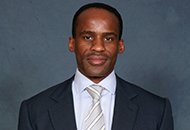 Progress: investigation of allegations of plagiarism Progress: investigation of allegations of plagiarism
On 10 May 2017, the NWU received allegations of plagiarism against some of its academics from the Council on Higher Education (CHE). These allegations were viewed in a very serious light, especially when media articles were published in July of the same year that implicated members of staff other than those the university became aware of through the CHE. Vigorous processes were instituted to determine the authenticity of the allegations.
Owing to the sensitivity of the matter, the university commenced with an investigation and has established a rigorous process involving various phases. These phases are a technical investigation by a plagiarism expert, establishment of a subject-matter expert panel to consider the technical report, and the involvement of an external review panel under the independent chairpersonship of a former acting judge. Support was also provided by an independent legal expert.
During the Council meeting on 18 March 2019, Council took note of the progress into the investigation involving 21 current and former staff members.
In regard to 10 persons who have been implicated and who are in the employ of the NWU, no prima facie evidence was found that pointed to plagiarism. These staff members have been informed accordingly.
A prima facie case was made in regard to misrepresentation and plagiarism against two persons who have been implicated and who are in the employ of the NWU. The process in regard to these staff members had been concluded by the university. In taking all evidence and circumstances into account, it was resolved to reprimand these staff members, and to instruct them to refund the NWU in regard of the page fees paid in respect of the publication of the implicated article.
Regarding five other staff members who have been implicated and who are in the employ of the NWU, sufficient evidence was found that pointed to misconduct. However, owing to the fact that the technical report pointed to alleged networks of possible academic collaboration among groups of researchers, the panel advised that the technical investigation be extended. The follow-up technical investigation has been concluded and would now be made available to the subject-matter expert team that would need to consider the report and would report accordingly to the external review panel.
Prima facie evidence of plagiarism and falsification was also found against another staff member who had been implicated and who is in the employ of the NWU. This was in an article written in the time before the person had been employed by the NWU. Against the background of the preceding, the panel advised the vice-chancellor to note the evidence. The executive dean who reported the case had been informed of the advice by the external review panel.
With regard to three other individuals who have in the meantime left the employ of the university, prima facie evidence was found pointing to academic misconduct, including plagiarism. Council endorsed the suggestion by the external review panel that the registrar brings to the attention of national higher education structures, the possible appropriateness of establishing a platform for information sharing on matters that violate academic integrity at the respective universities. The registrar will pursue this avenue.
Council again emphasised that any acts that violate academic integrity by anyone associated with the university are condemned in the strongest possible terms, and if proven true, the involved parties will be dealt with in accordance with university disciplinary measures. Council also extended its appreciation to management for the rigor displayed in handling the matter.
|








